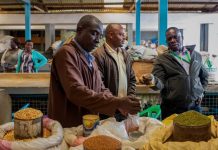Africa-Press – Uganda. Political violence, also known as electoral violence, has unfortunately already played and is anticipated to play a major role in determining the feel and outcome of the upcoming 2021 general elections.
Whereas competitive elections are by their very nature conflictual processes intended to mobilise divergent views and stimulate political competition between political actors in any given country, a red flag should be raised if this process stimulates more political violence instead.
It should be very concerning to all Ugandans of good will that our electoral process has raised a red flag already by delivering violence and death which appears to eclipse that of the 2006, 2011 and 2016 general elections combined.
Media reports have put the number of dead from the November 2020 clashes between security forces and Opposition supporters at 50. I shudder at the thought of what might happen on or after the election day on Thursday, January 14, if this trend is allowed to continue.
Going by the rhetoric of the rival political actors, it seems they are all determined to drive a deeper wedge in the electorate in much the same way they have been doing.
This leads me to suspect that we are not preparing well for a peaceful general election. My suspicion has led to the fear that we could have reached the tipping point of election violence. God forbid!
It is an ominous sign that election violence, which is usually an entanglement involving rival political actors and groups, has given birth to a progeny of intra-party election violence.
We all witnessed the unprecedented levels of intra-party election violence in the NRM primaries which were held in the last quarter of 2020. I had a close view of this intra-party violence in some cases where I had taken a brief from aggrieved NRM party members and I was left in total shock and bewilderment.
One would have expected that the design of the electoral system of the NRM primaries built on the principle of universal adult suffrage which replaced the electoral colleges in 2010, should have alleviated the risk of political polarisation and violence within the party.
But as it turned out, the recent NRM primaries appear to have increased political polarisation and violence within the party, despite the enthusiastic participation of many party faithful’s and the majestic grandeur of the primaries which attracted envy from rival political actors.
In the story published in the Monitor of September 5, 2020, under the title ‘6 people killed as candidates protest results,’ it was reported that six people were killed during the NRM primaries held in Isingiro, Katakwi, Namutumba and Tororo districts. This is probably the first time in the history of Uganda that a party member has paid the price for seeking elective office within his party with his or her life.
The above sad tale of the inter-party and intra-party election violence which we have experienced in Uganda should give a clear indication that we have the potential for election violence as a country irrespective of our political affiliation.
This should also remind us that our respective party cards or colours cannot save us from the indiscriminate nature of election violence despite assurances from politicians.
The ethnic-based electoral violence which torched up Kenya after the 2007 general election killed more than 1,000 people and displaced close to 500,000 despite assurances of victory and serenity from Mwai Kibaki who was contesting under the Party of National Unity and Raila Odinga, then under the Orange Democratic Movement.
If it wasn’t for the swift intervention of the international community, which was led by the United States, the bloodletting would have claimed more lives. Unsurprisingly, the assuring rhetoric of the politicians who had stoked the fires went silent.
In Kenya, it was the self-absorbing egoistic tendencies fuelled by ethnic grievances over land, privilege and inequality that turned the 2007 Kenyan elections into a ticket to hell.
The death and destruction which ensued in Kenya could have been avoided if the Kenyan body politic had not ignored the pent-up anger and frustration of the electorate which just needed an excuse of a botched up electoral process to spark into a disastrous fireball.
As former US First Lady Eleanor Roosevelt once remarked, “We should learn from the mistakes of others because we can’t live long enough to make all of them.”
I don’t mean to say this with tongue in cheek, but the reality is that we are lucky that the same mistakes we have made and are continuing to make in this general election, were already committed in Kenya in 2007. We should, therefore, heed the advice of Eleanor Roosevelt and learn from the mistakes made by our Kenyan brothers and sisters.
If, as we hope, this year’s election exercise concludes successfully and peacefully, we should cut short any celebrations and instead set to work on reforming our electoral laws.
I think that our electoral laws have something to do with the instigation or mitigation of election-related violence in Uganda. This should, however, be the subject of a full discussion for another day.
What I can say at the moment is that the Presidential Elections Act, for example, does not define electoral violence. The only reference to election violence in the Act can be found in Section 26 which creates the offence of interference with electioneering activities of other persons. It is the above provision that the Ugandan courts use to deal with election violence cited in election petitions. Whereas the punishment for election violence under this section which at less than three years is very decimal, you will be hard-pressed to find a convict, let alone one serving a sentence, for election violence in Uganda.
This situation contrasts unfavourably with the position in Kenya where the law clearly defines election violence and a court hearing an election petition can recommend the prosecution of the perpetrators under the Election Act 24 of 2011 and the Election Offences Act Cap 66. I want to believe that this handicap in Uganda can be nebulised by enacting specific legislation to support prosecutorial and judicial action aimed at punishing all forms of electoral violence.
My sense is that we cannot continue lamenting as a country about election violence and expect miracles to happen if we leave the perpetrators of election violence to go unpunished.
To do so only serves to encourage and energise some errant political actors, sections of the electorate and the security apparatus to indulge in more wanton acts of election violence. This is the main reason why inter-party and intra-party election violence is on the increase in Uganda.
The Ivory Coast experimented with a lame duck approach to election violence when it neglected to tackle the actual root cause of the problem after vicious election violence erupted during the 2010/2011 general election.
Since then, the country has continued to experience more and more political and electoral violence, the latest instalment coming in the October 2020 general election.
A Uganda of sound mind cannot afford to follow the example of Ivory Coast.
On the other hand, Kenya is reaping great political dividend from the constitutional and electoral reforms it put in place to redress the causes of the 2007 electoral violence.
It is these legal reforms that are credited with nearly nullifying the excesses of political and electoral violence which had provided a wrong pigmentation to the Kenyan electoral process in the past. I suggest that Uganda attends to its electoral violence problems by following the Kenyan example.
My humble appeal to all Ugandans of goodwill is to exercise maximum restraint by ensuring that we do not lend ourselves to any violent conduct during and after casting our parliamentary and presidential vote on Thursday, January 14.
As a people belonging to one homogenous society, we don’t need to prove to each other that we are more violent. If we insist on proving our violence in such a manner, we may end up destroying ourselves and the country as a whole.
I will end by leaving you with a quote from the Bible, specifically the Book of Leviticus 24:19, “And a man who injures his countryman – as he has done, so it shall be done to him.”For God and my Country.The writer is managing partner, Muwema & Co Advocates






